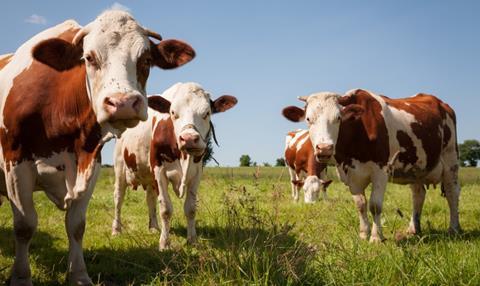Morrisons has unveiled plans to trial the use of seaweed at its producers’ farms, to reduce the amount of methane created by its beef cows.

According to research by the University of California, a small amount of marine algae added to cattle food can reduce methane emissions from cattle gut microbes by as much as 99%. The new study, funded in part by the supermarket chain, will be a continuation of this research.
Morrisons plans to work with its fishermen suppliers to source seaweed which would then be made into a supplement added to the animals' diets.
The three-year experiment will be carried out in partnership with Queen’s University Belfast. The supermarket hopes that the trial will effectively assess the efficacy of feeding cattle seaweed sourced from British and Irish coasts in cutting emissions of the greenhouse gases that they naturally produce.
"A truly innovative partnership"
Professor Sharon Huws, professor of animal science and microbiology of the Institute for Global Food Security, and who is leading the research programme, said: “We are excited to publish our lab research in due course. This is showing that, of several UK seaweeds tested in the lab, at least one is indicating a reduction in methane production. The next step will be to trial the effective seaweeds as nutritional supplements for cows and this will be managed by a Morrisons-funded PhD student.”
Commenting on Morrisons’ plans, Huws said: “This is a truly innovative partnership between a retailer and researchers. The involvement of Morrisons means that effective methane reduction can be rolled out to Morrisons farmers’ herds of beef cows, and the seaweed needed can be sourced through its relationships with fisheries.”
"The natural approach" to reducing emissions
Sophie Throup, head of agriculture at Morrisons, said that the supermarket was “very mindful” of its role in supporting their partnered farmers to help them achieve more sustainable farming.
She said: “With our own livestock experts and direct relationships with farmers we’re able to make changes quickly. By supporting this PhD studentship and wider research we are trialling this natural approach to reducing the environmental emissions caused by burps and flatulence from cows - as well as improving the quality of beef products.”
This story was originally published on a previous version of the Meat Management website and so there may be some missing images and formatting issues.












